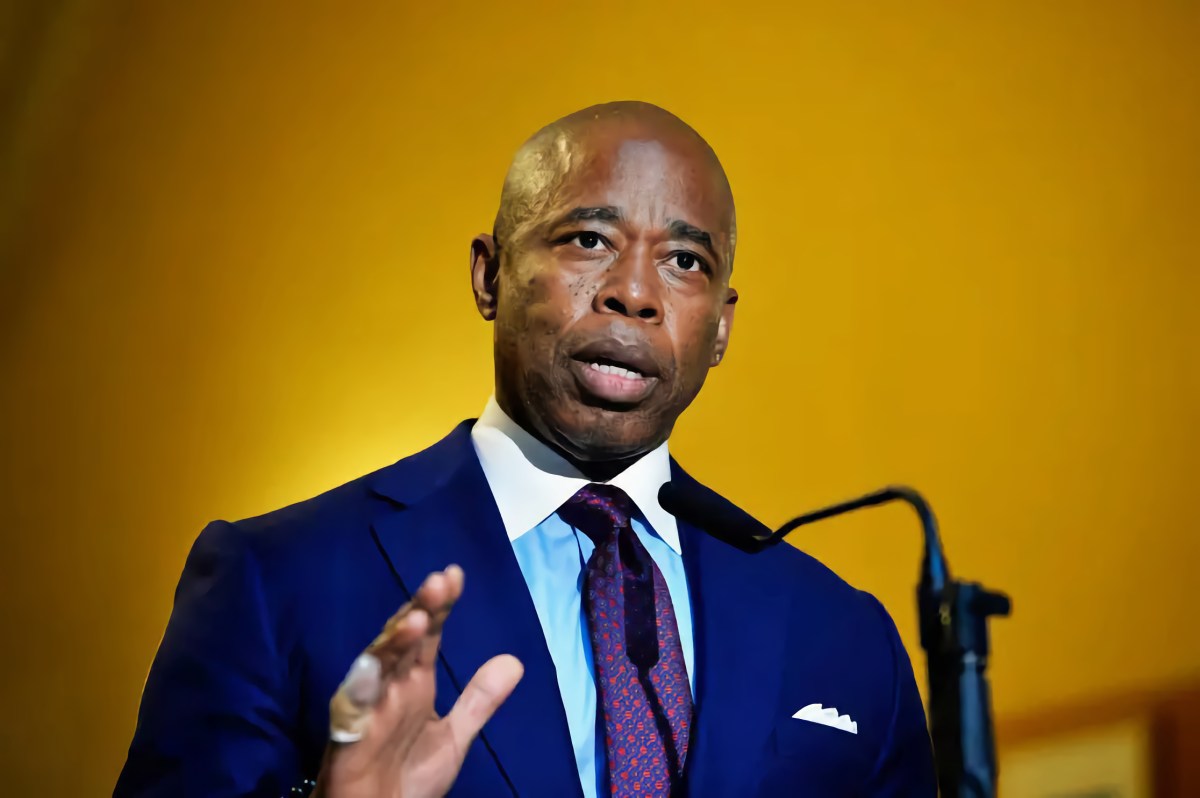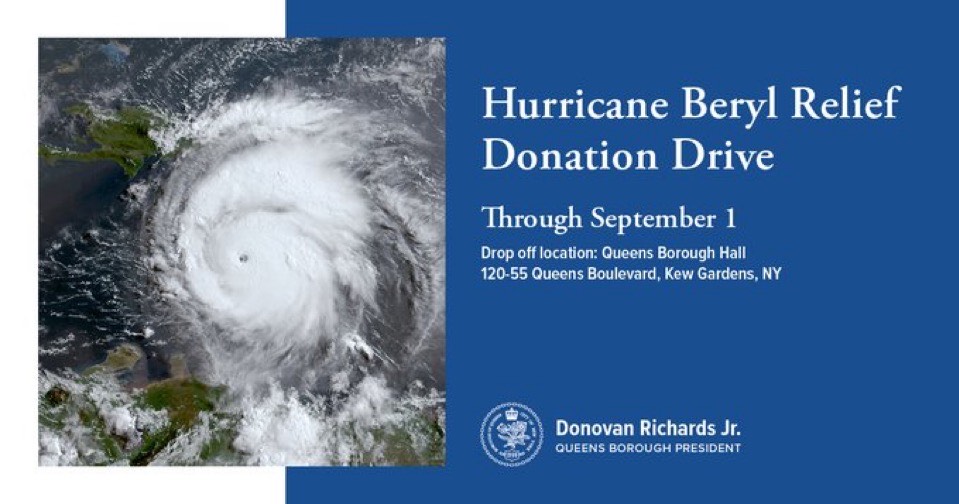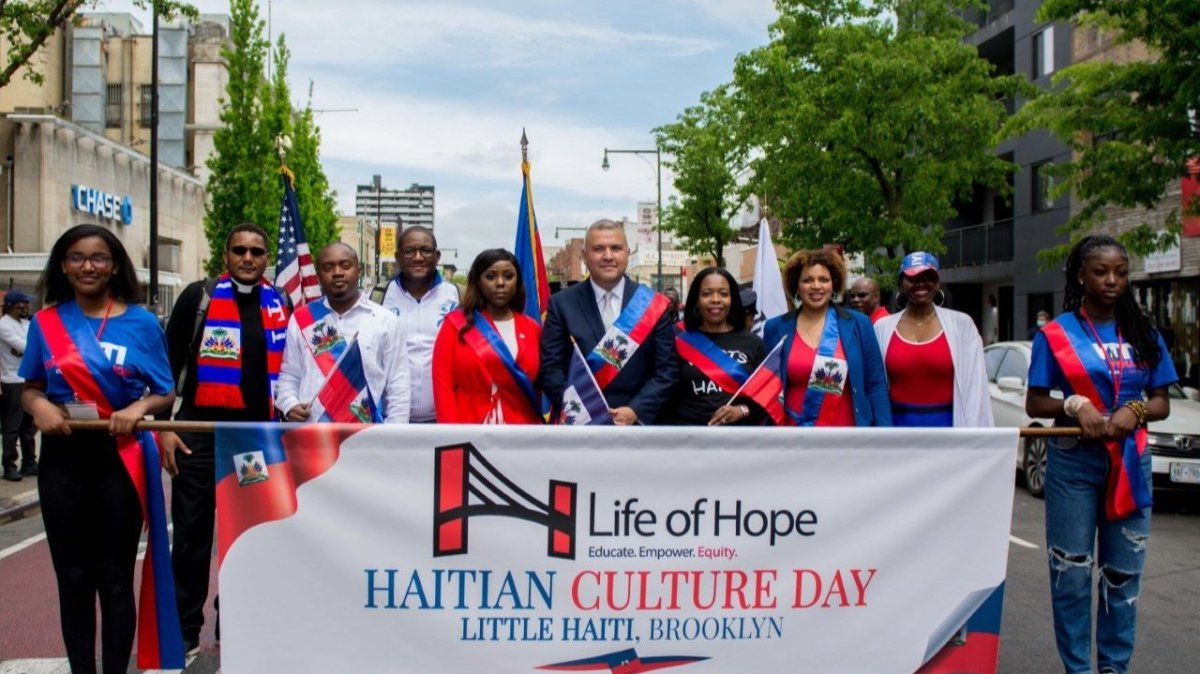New York City Mayor, Eric Adams on Wednesday announced the cancellation of the Fiscal Year (FY) 2025 Executive Budget Program to Eliminate the Gap (PEG) for city agencies and cut an additional 10 percent in budgeted city-funded asylum seeker costs on top of the successful 20 percent asylum seeker PEG in the Preliminary Budget that he said already saved more than $1.7 billion in city spending, while continuing intensive case work for Caribbean and other migrants to help them on their path to self-sufficiency.
Adams said the earlier proposed budget cuts were “a direct result of decisive actions to stabilize the budget.”
In addition to cancelling the city agency PEGs, the mayor said his administration is moving from a near full hiring freeze to a “2-for-1 model” and easing other than personal spending (OTPS) freeze restrictions.
Adams’s announcement came just one day after internationally-recognized, independent credit rating agency Moody’s Investors Service affirmed New York City’s Aa2 issuer rating and praised the administration for its “robust financial management” and the successful “implementation of budget measures to help close budget gaps…caused by the migrant crisis.”
“Our administration came into office with a mission to protect public safety, rebuild our economy, and make our city more livable for everyday New Yorkers. After two years of hard work, we are heading in the right direction: Jobs are up, crime is down, tourists are back, and we are delivering for working-class New Yorkers every day,” said Mayor Adams.
“And despite facing a perfect fiscal storm that included a multi-billion-dollar budget gap driven by an asylum seeker crisis, the sunsetting of COVID-19 federal stimulus funding, and the cost of inherited outstanding labor costs, our administration was able to successfully make the strong fiscal decisions to navigate us to prosperity,” he added.
Adams said the combination of tough but necessary financial management decisions, including cutting asylum seeker spending by billions of dollars, along with better-than-expected economic performance in 2023, allow his administration to cancel the last round of spending cuts, as well as lift the near total freezes on city hiring and other than personal spending.
“Make no mistake — we are not yet out of the woods, as we still need Albany and Washington, D.C. to play their roles in providing New Yorkers with additional support,” he said. “But this new chapter is the result of a full collaboration across city government, our nonprofit partners, and so many others, and will allow us to continue to deliver on our mission for a safer, cleaner, more prosperous New York City for all.”
The mayor noted that, last summer, the city faced a multi-billion budget gap due to the growing asylum seeker crisis, drying up federal COVID-19 stimulus funding, expenses from labor contracts that his administration inherited that he said went unresolved for years, and slowing tax revenue growth.
To manage these concerns, Adams said his administration implemented PEG savings programs and a near-total freeze on hiring and other than personnel spending in the November Financial Plan, as well as in the Preliminary and Executive Budgets.
But, as a direct result of his administration’s proactive fiscal management and decisive action, the mayor said his administration achieved a record $6.6 billion in PEG savings over FY24 and FY25 in the November Financial Plan and the Preliminary Budget.
He said this included $1.7 billion in asylum seeker PEG savings — a 20 percent cut — achieved over FY24 and FY25 by helping put migrants on a path to self-sufficiency with intensified case management and reducing the household per-diem costs of providing care.
“These actions helped balance the FY25 Preliminary Budget and stabilize the city’s financial position without layoffs, tax hikes, or major disruptions to city services,” Adams said. “And their success, along with another 10 percent in migrant spending cuts and better-than-expected tax revenue growth, have allowed the administration to restore funding for savings initiatives that are mayoral priorities related to public safety, quality of life, and young people, as well as fully cancel the FY25 Executive Budget agency PEG.”
He said New York City has continued to “effectively manage” the asylum seeker humanitarian crisis largely on its own without substantial aid.
To date, Adams said New York City has provided care for more than 178,600 asylum seekers, with about 65,000 currently still in the city’s care.
He said the city has also provided case management, shelter, food, and more to asylum seekers; stood up navigation centers with support from community-based organizations to connect new arrivals with critical resources; and enrolled tens of thousands of school-aged children to public schools through Project Open Arms.
As a result of his administration’s “responsible policies” — including providing 30 to 60 days of intensified case management — Adams said more than 60 percent of the asylum seekers who have come through the city’s intake center have left the city’s care and are taking the next steps in their journeys towards self-sufficiency.
Additionally, as of the Preliminary Budget, he said daily growth of the number of migrant households in the city’s care had slowed by nearly 60 percent since the implementation of these policies.
Through the Asylum Application Help Center and the city’s satellite sites, Adams said the city has helped submit more than 35,000 work authorization, temporary protected status, and asylum applications — “moving asylum seekers that much closer to being able to legally work and be self-sufficient.”
City Council Speaker, Adrienne Adams and Finance Chair Justin Brannan said they were “relieved that Mayor Adams and his administration have heeded the calls and advocacy of the Council and New Yorkers who have sought a better approach to our city’s budget that protects essential services our constituents rely on.
“As the Council’s economists forecasted, New York City’s economy has proven durable and resilient, and blunt cuts that had a disproportionately negative impact on vital programs were never necessary,” they said in a joint statement. “It remains critical for our municipal workforce to be strengthened, and the end of the full hiring freeze is an important step that will enable City agencies to fulfill their obligations to New Yorkers.
“We look forward to reviewing and analyzing the Mayor’s Preliminary Budget next month during the Council’s budget oversight hearings, including the impact of cuts to services supporting people seeking asylum, and we look forward to negotiating in good faith a budget that delivers for all New Yorkers,” Speaker Adams and Brannan continued.
Meantime, Murad Awawdeh, executive director of the New York Immigration Coalition (NYIC) that represents over 200 immigration advocacy groups in New York State, noted that, despite a budget surplus, Adams still announced an additional 10 percent cut to city-funded asylum seeker costs.
“Mayor Adams is becoming the real-life example of the boy who cried wolf,” he told Caribbean Life. “After spending months scapegoating asylum seekers for what the Mayor described as a looming fiscal crisis that required deep cuts to the city’s social services, he has had to retract his words and budget cuts twice already.
“While that’s good news for the city and New Yorkers, in general, this Mayoral Administration fails to take any responsibility for the false narrative it has created about asylum seekers,” Awawdeh added. “To add insult to injury, Mayor Adams is also trying to spin these cutbacks as being a result of his own fiscal management. It would be laughable, if not for the harm caused by the 30-and 60-day rules for new New Yorkers in shelters and the additional round of cuts being imposed on asylum seekers.
“The mayor has no excuses left — the 30 and 60 day rules are arbitrary bureaucratic hurdles designed to push vulnerable new arrivals and their families into the streets,” he continued. “It’s cruel and unnecessary, especially when we can be moving people out of shelters using housing vouchers to stabilize families in need, while saving the city $3 billion. Now, that would be the prudent thing to do, if the mayor really cared about being financially responsible.”
























